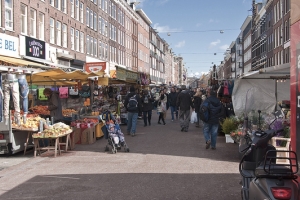Support migrant centric journalism today and donate

 • Media Center » Video Immigration News
• Media Center » Video Immigration News
The proposed EU Blue Card scheme for skilled immigrants will need to pass a crucial vote in the Civil Liberties Committee in early November, according to a press release by the European Parliament (EP).
The upcoming vote will consider a report by Ewa Klamt, member of the European People's Party–European Democrats (EPP-ED), the group supporting the Blue Card scheme in parliament.
Ewa Klamt stressed the European Union's need for skilled migrants, stating that her native Germany lacked 95,000 engineers; the nation's education system has only produced 20,000. She said that the EU should stop losing out on skilled labor; as an example, North Africans tend to migrate to other Countries:
"50% of skilled migrants from [North African] states go to the US or Canada, only 5.5 percent come to EU," she said.
According to the EP, the EU will need 20 million qualified immigrants over the next two decades to avoid severe skills shortages, especially in engineering and computer technology. Because the EU has 27 members and thus 27 different immigration policies, the EP has proposed the Blue Card in an attempt to make the EU more attractive to top talent from around the world.
The Blue Card would provide a "one-stop-shop" for highly skilled migrants from around the world who wish to live and work in the European Union. The Blue Card would be granted for two years and would be renewable.
While the Blue Card was inspired by the United States Green Card, there are some fundamental differences. For one, the Blue Card does not grant permanent residence while the United States Green Card does.
However, the Blue Card would allow skilled immigrants to bring family with them to their country of residence. The Blue Card would also grant freedom of movement within the entire European Union -- a kind of "Schengen visa for employment", as the EP puts it. After five years of living in the European Union, a skilled immigrant could choose to apply for permanent residency in the country they are currently residing in.
One of the key issues in implementing the Blue Card is the definition of "highly qualified". Klamt feels that there should be two possibilities: It could either refer to a higher education qualification - meaning at least 3 years of studies, or five years of professional experience.
MEPs on the Civil Liberties Committee support Klamt's view and will attempt to come to a decision during the upcoming meeting in November.





















